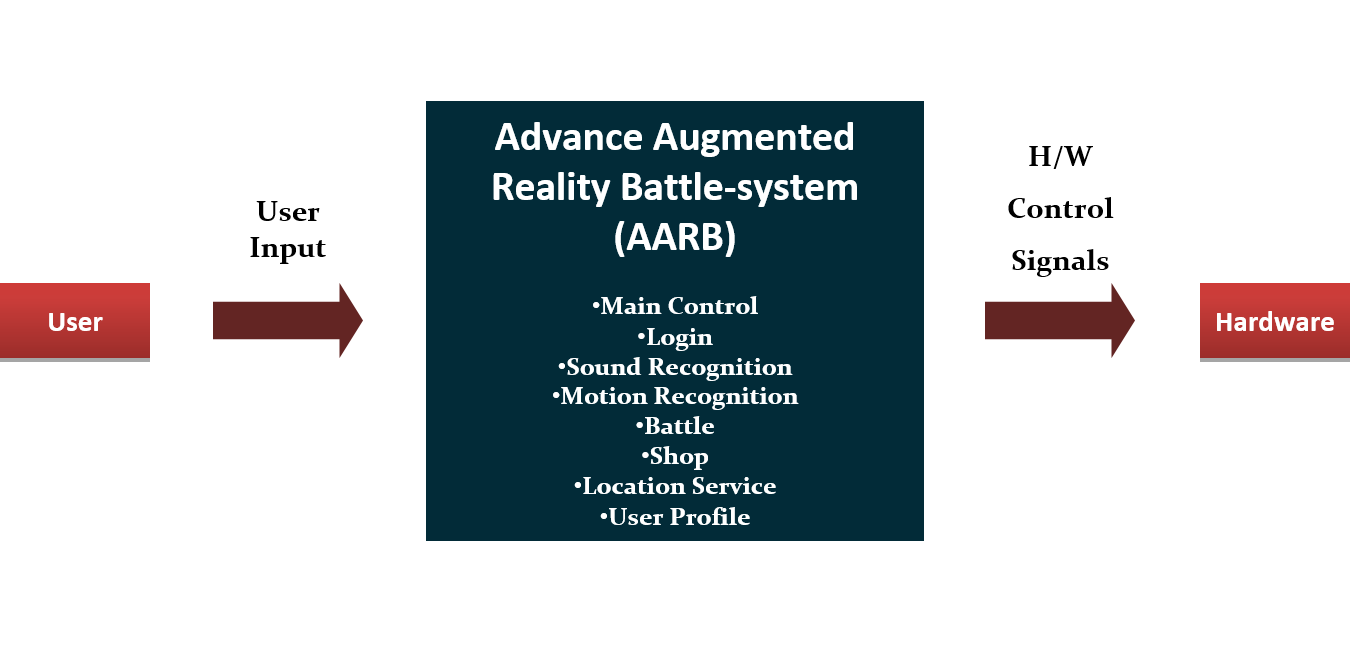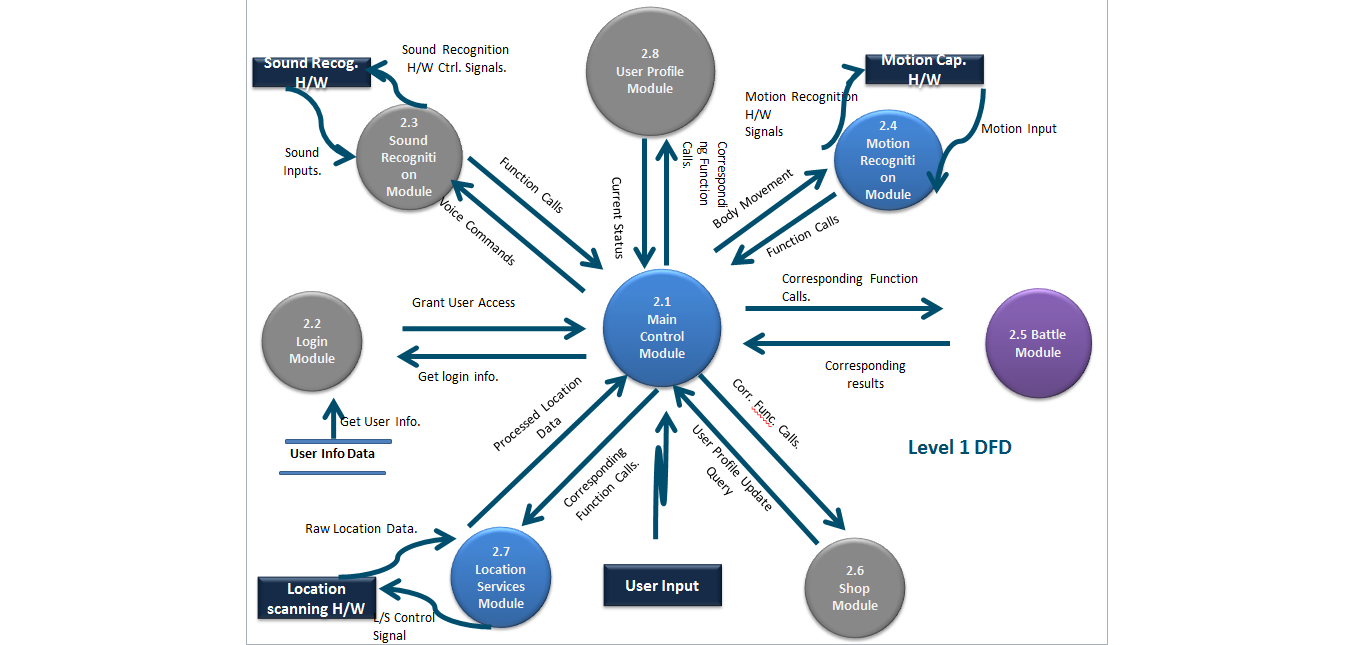Advance Augmented Reality Battle-system (AARB) Software Design Project
Period: April 2012 - June 2012

The Advance Augmented Reality Battle-system (AARB) project was an undergraduate software design project developed by a team of computer science students of the College of Engineering, Computer Science and Technology (ECST) in California State University of Los Angeles (Cal State LA). The developers were computer science undergraduates, Kazuya Namba, Tony Liang, Jacky (Peng Hsu) Lee, and Michael Hsu.
AARB is a cloud-based augmented reality online role-playing game, which takes advantage of Google’s location-based augmented reality functions. It is based on the hardware concept of the Google Glass. Users are required to have AR glasses to play the game. In this game, the player role-plays a character and battles other players for experience and gold. Players level up their characters from earned experience. Players use gold to purchase upgrades, attacks, and other items from the online shop. Players would join lobbies and use the Google location service to find nearby players to duel. During the battle, the players must use voice commands and body action to perform various attacks at other players. The winner will receive experience and gold.
The developers created the functional requirements and design document of the AARB which includes the scope, architecture, detailed functional description, requirements (functional, non-functional, and hardware), and functional requirements validation matrix of the project, and references for the project. The game consisted of eight major modules. Kazuya designed the battle and location service modules and their submodules. Tony designed the user profile module and its submodules. Jacky designed the shop module and its submodules. Michael designed the main control, login, sound recognition, and motion recognition modules and their submodules. Each developer wrote descriptions of the modules, and functional requirements and their validation matrices for the modules.

